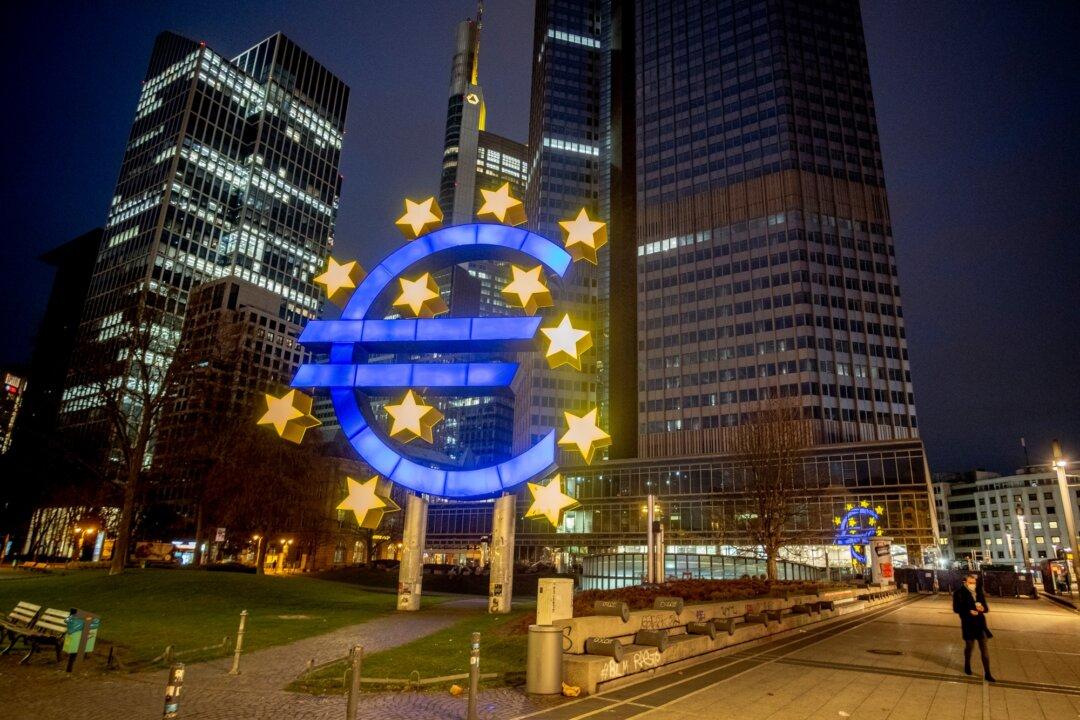Shares of banks in the eurozone recorded sharp declines on Feb. 24 after Russian forces mounted a large-scale offensive against Ukraine and European Union officials announced new sanctions against Moscow.
Europe’s banks—especially ones in Austria, France, and Italy—are the world’s most exposed to Russia. In the weeks leading up to the start of the Feb. 24 multi-pronged military action against Ukraine by Russian forces, they’ve been gripped by concerns that an invasion would trigger biting sanctions with potential impacts on their operations and on financial stability more broadly.





